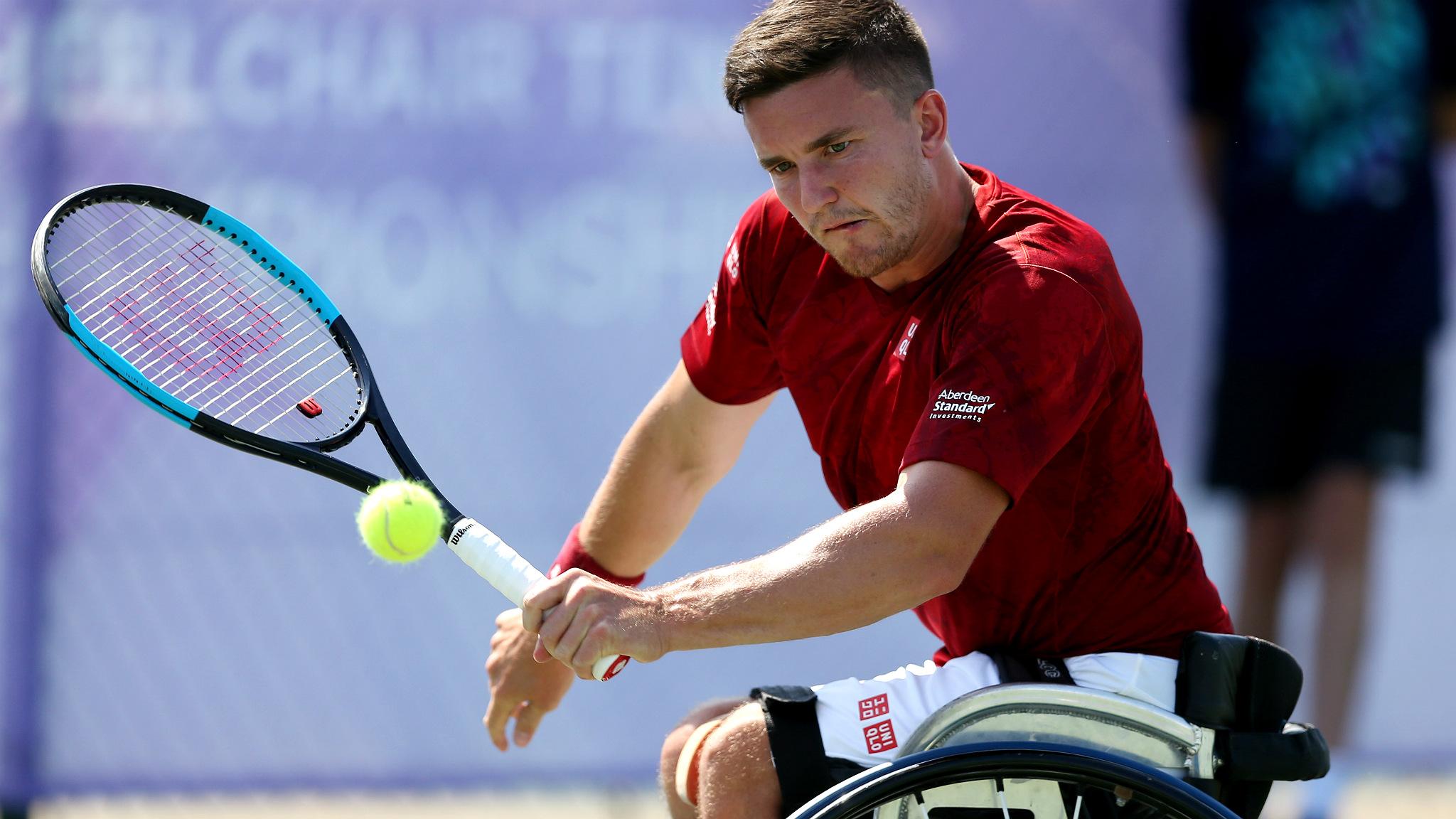US Open 2015: Andy Murray faces tough decisions over future
- Published
- comments
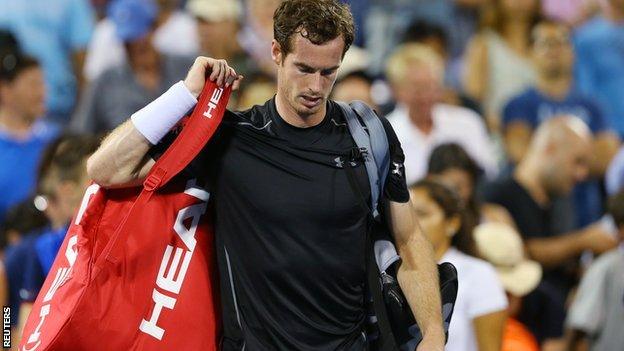
It is the first time since the 2010 US Open that Andy Murray has lost before the quarter-finals of a Grand Slam
This has, in many ways, been a very reassuring year for Andy Murray.
He won his first Masters Series title for over two years in Madrid in May, and added another in Montreal last month. And by reaching the Australian Open final, as well as the last four at Roland Garros and Wimbledon, Murray has re-established himself as one of the best three players in the world. He even beat Novak Djokovic - to end a run of eight consecutive defeats by the world number one.
But there will inevitably be frustration that after such a successful year, he has failed to add to his tally of two Grand Slam titles.
Murray's 2015 Grand Slam record | |
|---|---|
Tournament | Result |
Australian Open | Runner-up |
French Open | Semi-finals |
Wimbledon | Semi-finals |
US Open | Fourth Round |
The benefits of a first meaningful training block with Amelie Mauresmo in Miami last December were evident in Melbourne in January, and Murray's clay-court form was a revelation. The plan this year, where possible, has been to play a smaller tournament in the lead-up to the Masters events in the hope the extra preparation would pay dividends.
It has. Not only has Murray's ranking improved from six to three since the start of the season, but he has also been a much more potent threat in the Grand Slams. Or at least in three of the four, as here in New York he appeared to run out of steam.
Matches played in 2015 | |||
|---|---|---|---|
Player | Won | Lost | Total |
Roger Federer | 49 | 7 | 56 |
Rafael Nadal | 44 | 15 | 59 |
Novak Djokovic | 60 | 5 | 65 |
Andy Murray | 59 | 10 | 69 |
Murray had already played a five-set match against Adrian Mannarino before his four-hour-17-minute defeat by Kevin Anderson, but a lack of spark and the reduced power on his forehand in that fourth-round match seems closely related to the amount of tennis he played earlier in the summer.
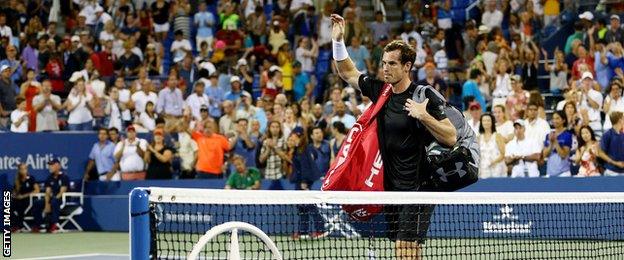
Murray lost 7-6 (7-5) 6-3 6-7 (2-7) 7-6 (7-0) to Kevin Anderson in the US Open fourth round
Murray's commitment to Great Britain's Davis Cup team is not without its drawbacks. This year's quarter-final against France at Queen's Club took place the week after Wimbledon, leaving him just one week of rest before flying out to Washington to compete in an ATP 500 event which would have been worth his while financially. A first-round defeat there encouraged him to play in both Montreal and Cincinnati in the two weeks that followed, before heading to New York to complete his preparations for the US Open.
Going into the year's final Grand Slam, Murray had played 65 matches over the course of 14 tournaments and two Davis Cup ties. World number one Djokovic, by contrast, had played 61 matches in 11 tournaments and one Davis Cup tie, and Roger Federer - who is yet to play in the team competition this year - 52 matches in 12 events. The Swiss world number two, 34, signed up for (and won) only one event between Wimbledon and the US Open.
Missed opportunities to blame for exit - Murray
Murray says life will be far less frenetic after next week's Davis Cup semi-final against Australia in Glasgow. He expects to play in just Shanghai and Paris before the World Tour Finals begin in London in the middle of November.
Britain's first Davis Cup final since 1978 may follow, after which Murray will have to make some tough decisions about his future. He plans to train at home this December, as his wife Kim will by then be heavily pregnant, and expects to be away from the tour in February: the month in which the baby is due.
But what will his schedule look like for the rest of 2016? Will he be able to commit to the Davis Cup for another full year? Any quarter-final would again be played the week after Wimbledon and he is also due to defend his Olympic title in Rio in the run-up to the US Open.
As Murray told me, with a smile on his face, after his defeat by Anderson: "If I don't play Davis Cup, I get abused by you guys."
He may find himself in an unenviable position. And at 28 - the age a modern day player tends to reach his prime - these decisions carry a lot of weight.
- Published9 September 2015
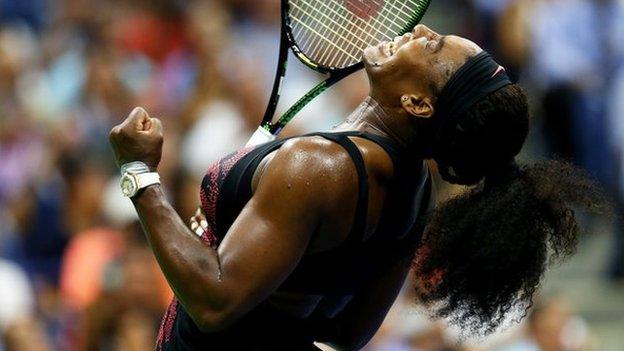
- Published9 September 2015
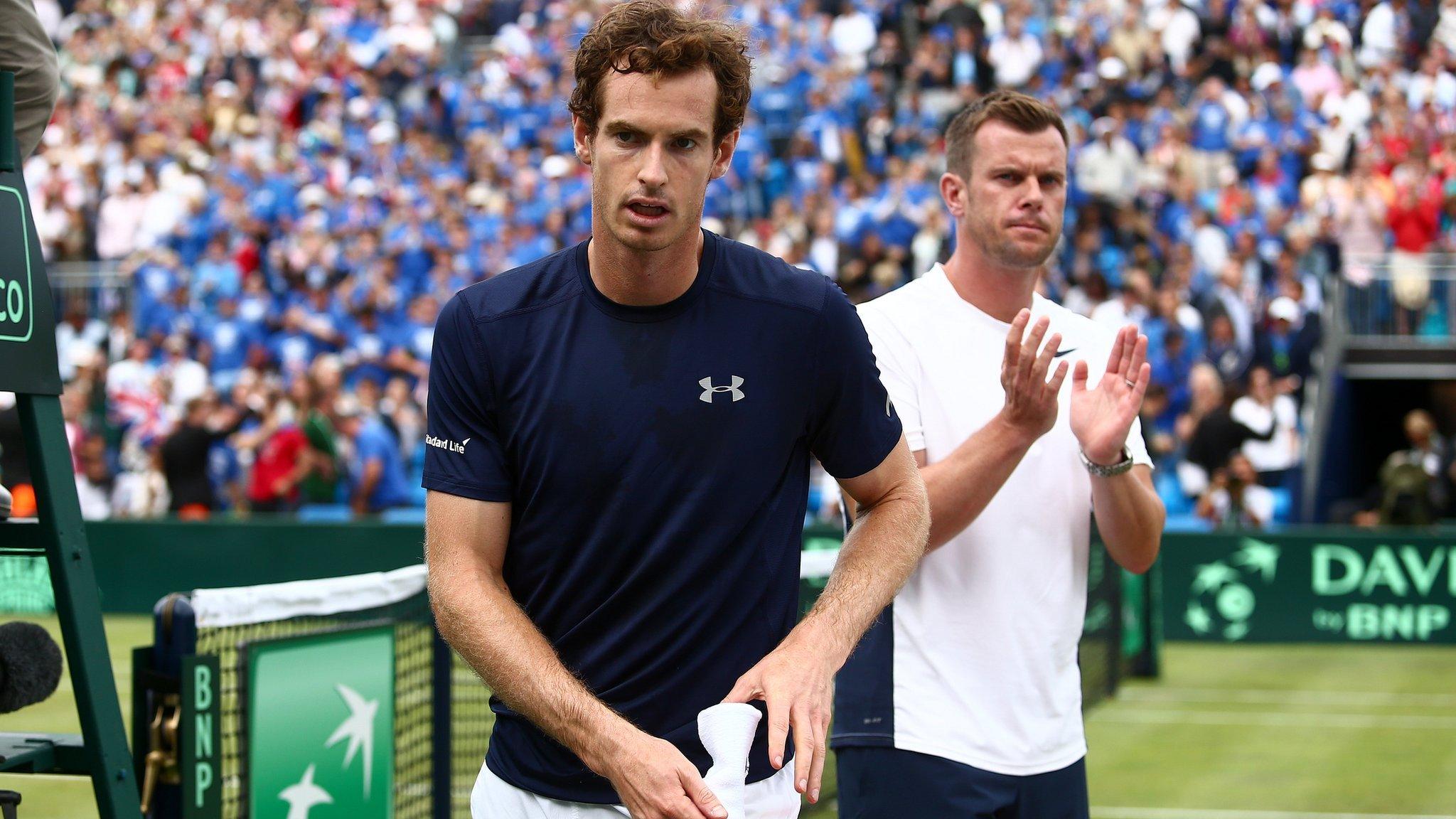
- Published8 September 2015
- Published9 September 2015
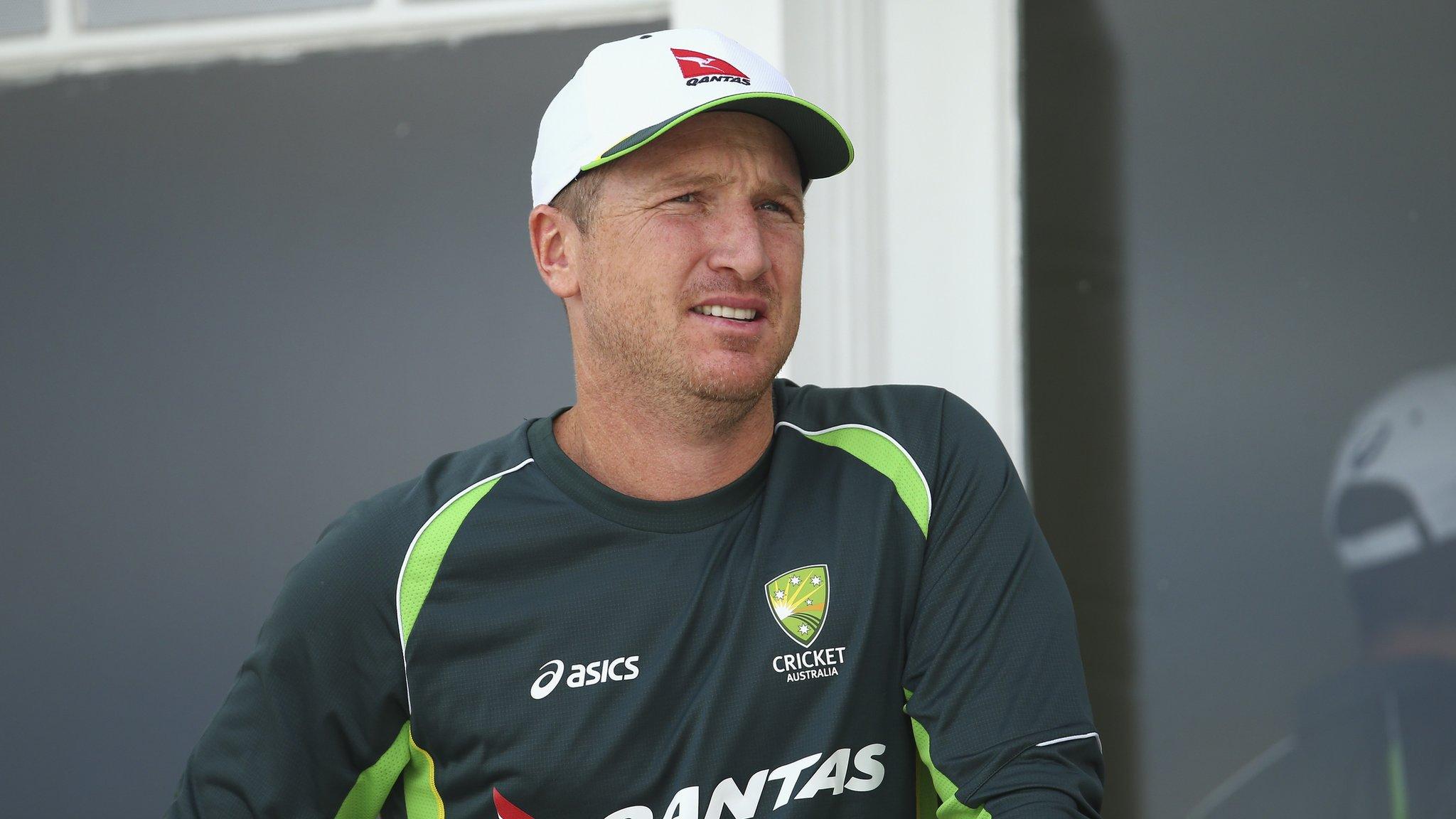
- Published8 November 2016
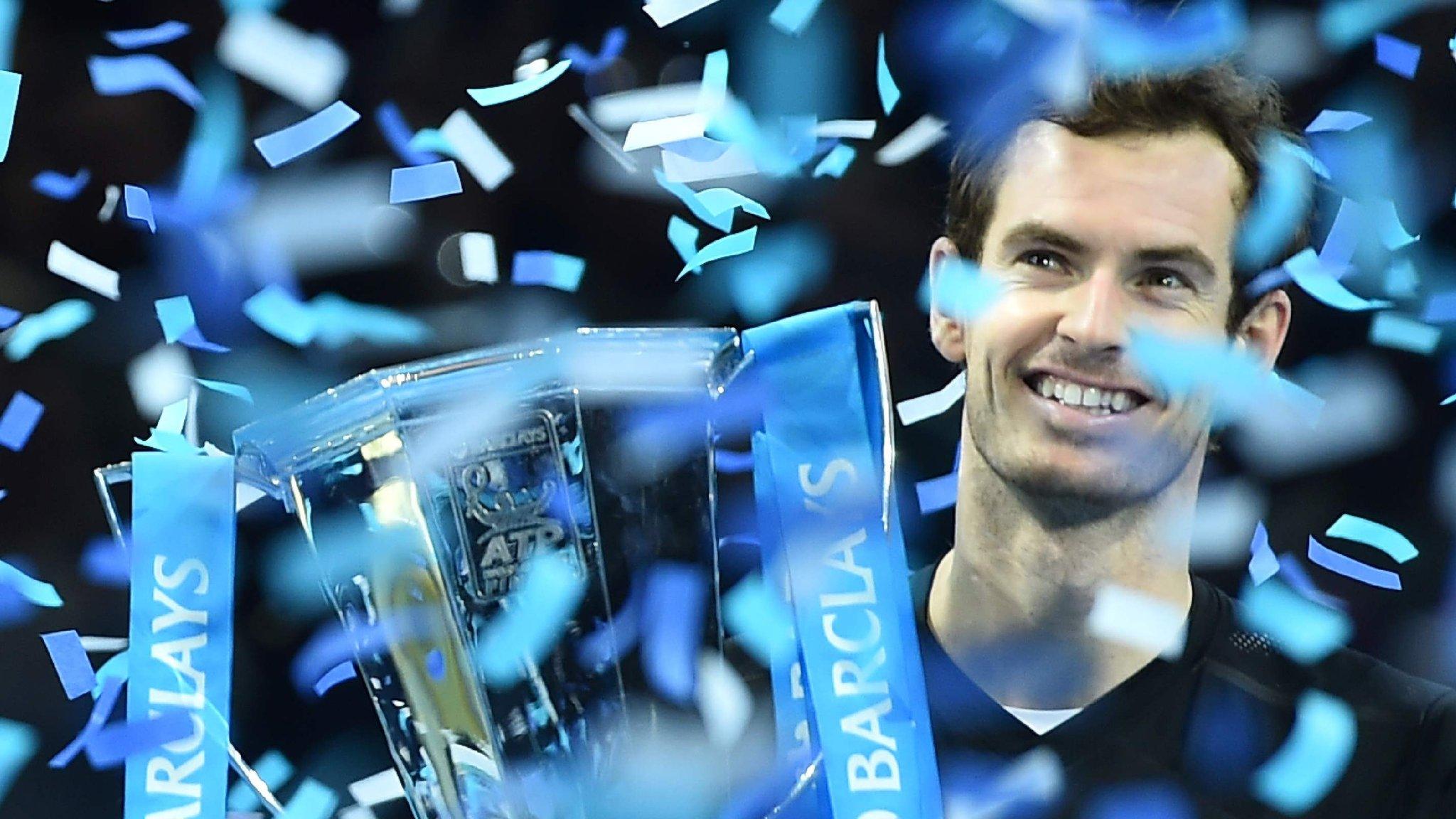
- Published9 November 2016
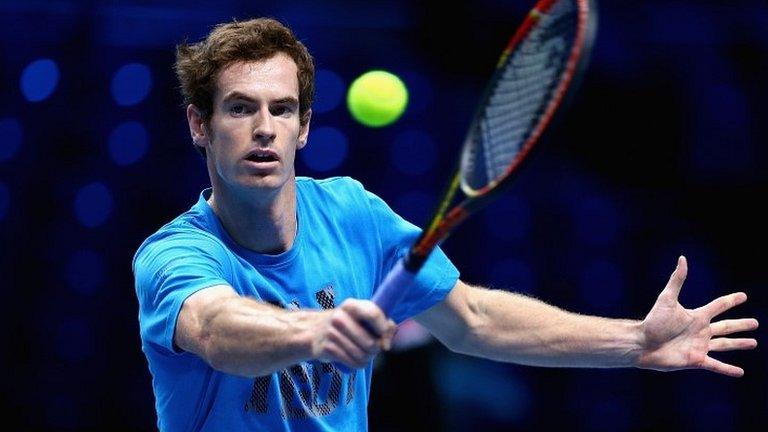
- Published17 June 2019
